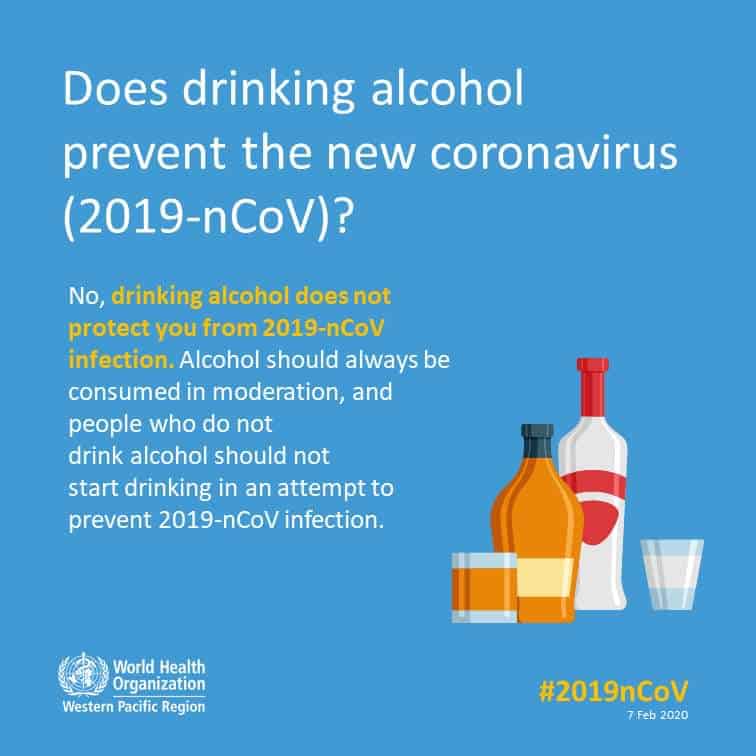In Great Britain and Northern Ireland, March 2020 will be remembered as the month a worldwide virus took hold of the nation, forcing its inhabitants indoors for their safety. The threat of the COVID-19 strain of coronavirus has affected the activities of public health alcohol experts, alcohol producers, retailers, and the plans of policymakers. It will also make a significant impact on the lives of those affected by alcohol harm, a fact recognised by specialist support services. Here are some of the most prominent examples of what has happened so far.
Depleted attendance to GAPC
The biennial Global Alcohol Policy Conference 2020 still went ahead in Dublin, although fewer delegates attended than expected, as the first few cases of the virus emerged in Europe. Ireland’s Minister for Health Simon Harris delivered the opening speech, in which he declared his pride at the work the Irish Government are doing to deliver the Public Health Alcohol Act. ‘I’m ok with being a Nanny’, Harris declared. ‘Sometimes we need Nannies – we care for people and mind them, and have to protect our children’.
“I’m proud of Ireland’s alcohol legislation and the work we are doing – and I’m ok with being a Nanny. Sometimes we need Nannies – we care for people and mind them, and have to protect our children.” @SimonHarrisTD @roinnslainte #GAPC2020 pic.twitter.com/3Yhk2MX73E
— Lucy Westerman (@lewest) March 9, 2020
While GAPC happened, the show could not go on for subsequent parliamentary events centred on alcohol and health. The Alcohol Health Alliance’s Drink on your doorstep and Eurocare’s Alcohol and cancer events were both postponed until further notice.
Alcohol as sanitiser?
As the virus hit British shores, the government announced it will fast-track alcohol licence applications to make hand sanitiser to address shortages caused by the coronavirus crisis.
Perhaps as a national duty, or perhaps as a corporate social responsibility exercise, alcohol producers have chipped in, although the efforts of renegade brewer Brewdog were declared not particularly useful to Aberdeen Royal Infirmary.
Last orders
Retail wise, alcohol was doing a rip-roaring trade in the run up to a government-authorised lockdown of the country on Friday 20 March, with many eyewitness reports on social media of pubs ‘heaving’ with punters. After the lockdown was confirmed, some pubs seemed desperate to hold on to business. Lancashire Police said it had been told of pubs ‘holding lock-ins’. Derbyshire and South Yorkshire forces received similar reports.
During that week before lockdown, the best-known of pub chains, JD Wetherspoons, was at the centre of a public row over whether pubs should be open. Owner Tim Martin claimed that pubs were ‘less crowded’ than supermarkets, that there had ‘hardly been any transmission’ of the virus’ on his premises, and that to close them down would be ‘over the top’. Martin has since relented, just as his desire to keep pubs open has revealed his company’s unsavoury employment practices.
Pub owners’ exasperation at closing was compounded by the government’s position on off-licences, which were regarded as ‘too essential‘ to close. This has come as a relief to some retailers seeking to take advantage of the surge in demand for take-home alcohol by declaring themselves essential. In response, trade bodies including the Society of Independent Brewers (SIBA) and the British Beer and Pub Association (BBPA) have asked the government to consider letting pubs make deliveries, as well as to cancel paying their monthly beer duty dues to HM Treasury, which they claim ‘threatens their survival’.
Unintended consequences
The prospect of a spike in home drinking – at-home beer consumption is set to almost double from 60 million pints a week to up to 100 million a week – coupled with the rise of communication apps such as Zoom has created a new phenomenon, the virtual pub. Undeterred by lockdown, the Daily Star reported that ‘millions are expected to join the virtual pub phenomenon as at-home drinkers knock back pints in front of their phones’ video-conferencing apps showing friends doing the same’, putting a new spin on ‘social distancing’ as an order.

Since February, the WHO has warned that |
Public health warning
In the absence of a coordinated campaign from the government, it was left to public health experts to make the case for minimising the risk of engaging in unhealthy behaviours.
In addition to its initial warning in February (see infographic), the World Health Organisation has repeated its assertion that alcohol is an ‘unhelpful coping strategy’ for the possible stress and isolation of coronavirus lockdown. In Britain, more than 100 medics and public health professionals signed an open letter urging the government to consider emergency measures to reduce the strain on the health service during the pandemic, of which the ‘urgent implementation of high-enough minimum unit pricing of alcohol to reduce some of the most problematic drinking which puts so much strain on Emergency Departments’ was one.
Public health Professor Linda Bauld also gave advice for those struggling with their mental health during self-isolation and social distancing on the BBC Debate Night programme, warning that alcohol use ‘may go up’ in times such as these.
“Get up in the morning and try and set a routine… have human contact early in the day… find a way to get some exercise.”
Public Health Professor @LindaBauld gives advice for those struggling with their mental health during self-isolation and social distancing #bbcdn pic.twitter.com/2U0pA2Ac5X
— BBC Debate Night (@bbcdebatenight) March 18, 2020
Support during difficult times
A number of alcohol support services have advertised how they intend to help people during these difficult times. Please see below for more guidance for those at risk of suffering from alcohol-related problems during the lockdown:
- Alcohol Health Alliance UK: Online resources for alcohol addiction recovery during the coronavirus
- Alcohol and Families Alliance: COVID-19 – What AFA members are doing to support families and the sector
